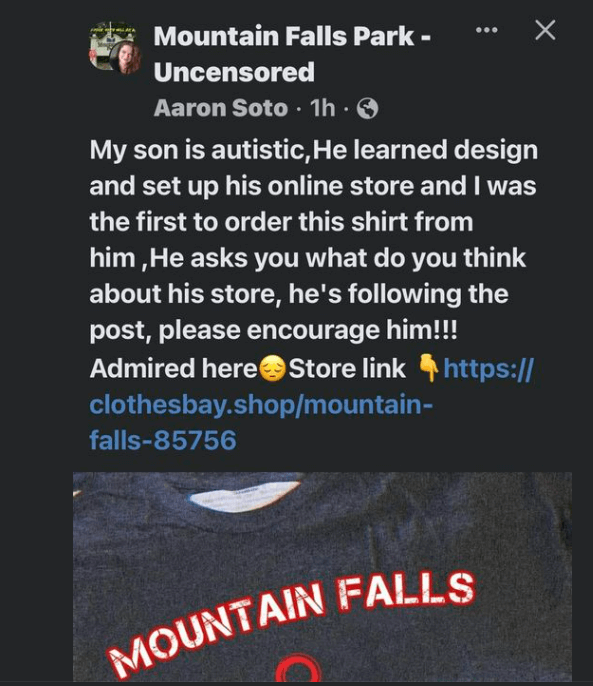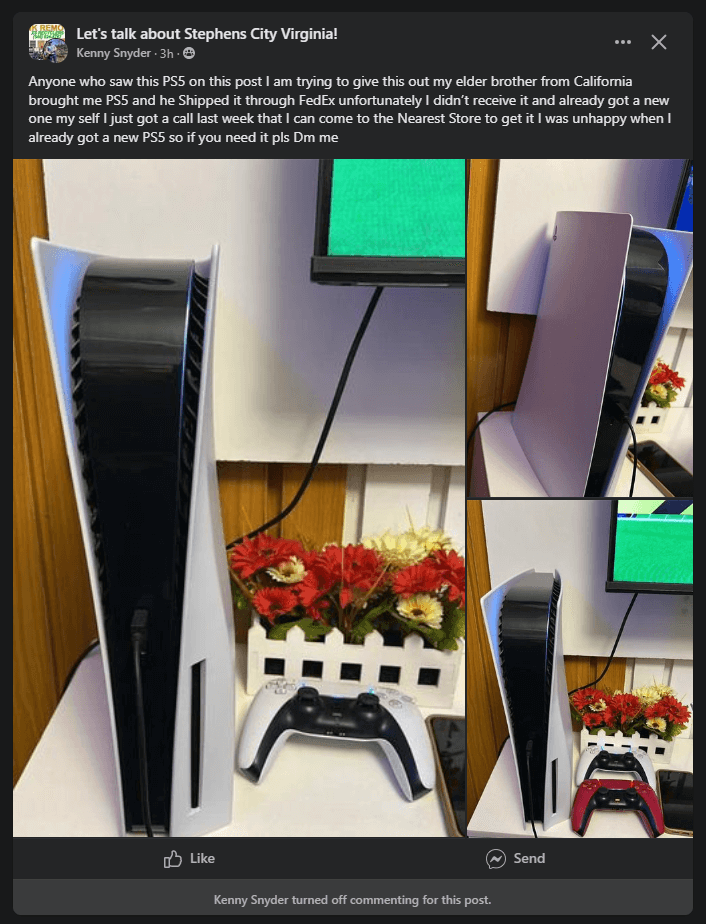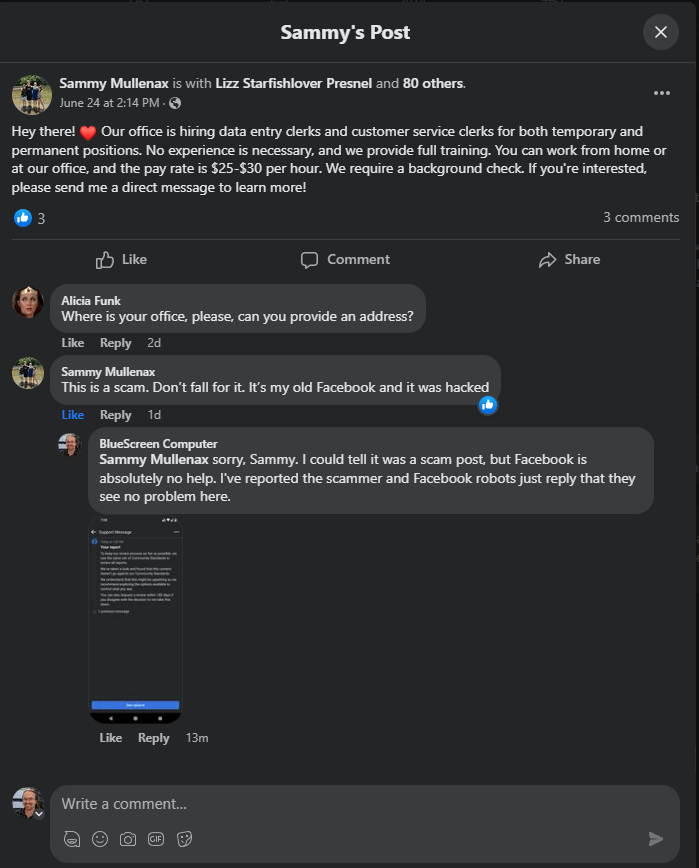There is no end to the scams I see on Facebook. I know I’ve posted at length about specific FB scams, but in this post, I want to run down quickly on a bunch of commonplace Facebook scams. Watch out for these, don’t fall for these, definitely report these:
(Don’t) Buy This Shirt!
This offer may tug at your heartstrings, because they’ve mentioned their son is autistic. But there is no son, and the poster is from another country. The URL will take you to a web-storefront, where you can pay money for a shirt. But it’s at an online marketplace where anyone can quickly open up a shop and have shirts printed:

You might actually get a (lousy) shirt, but please realize that you’re giving your card info to a stranger who may be halfway around the world. The big risk here is getting mystery charges on your card, later on.
Neon for Free
Want a neon sign? You’re not going to get one from these jokers. Their plan is to privately message you, gently guilt you towards making a small donation, and then disappear with any money you’ve sent them.

Vendor Fee for Non-Existent Fair
Looking to sell your hand-crafted art in your region? Community fairs and festivals are the way to go, but beware generic scam posts as shown below.


While at first glance, these may look legitimate, it’s a lie and a trap. The poster has used Google to find an address commonly used for public events. Any email or phone number provided is not connected to the stated address; they go straight to the scammer. They’ve crafted this post so that people will contact the scammer and not the venue. And if you contact the scammer, they’ll take your “reservation fee” and disappear with it.
Egg Sales
I’ve picked this scam apart before, but it deserves a mention, since I’ve seen it often this month. It’s similar to the above scam, in that they want to privately message you and get an advance payment for eggs. But you’ll be sitting by the door waiting forever for that henfruit. The poster is just using a sock puppet account, as they sit in an internet cafe in Kenya.

Giving Away a Gaming Console
Those PS5’s are super-expensive, so seeing someone giving away one for free on Facebook may seem like a miracle. And even more convincing is to see someone local, someone believable!, posting about how you can have their unwanted video game hardware:

But this type of scam is usually carried out using a stolen Facebook account. If you contact them for the console, they’ll say that they moved to another state, but can Fedex the device to you, as long as you cover their shipping. Once again, if you send them any money, they’ll ghost you and you’ll never get anything in return.
Moving, Everything Must Go
If a real person has to move and sell off a lot of stuff, they’ll give you an address to visit, and a phone number to reach them at. But some posts only lead to private messages, where you are urged to pay a small amount to “hold” the item for you. I think by now you know what’ll happen if you give them any money.
And other “moving” posts lead you to other weird websites or private Facebook groups, where you’ll meet with other scams and attempts at collecting your personal information.

Fake Job Listing
If you think you’ve found your dreamjob on Facebook, think again. Many of them are traps:


A real job listing should state a well-known company name, and will refer you to Indeed.com or some other corporate website. This scam job listing has no real contact info, and will only lead to a fake job interview over chat, and then they’ll try to get your bank account info or worse.
Telltale Signs of a Facebook Scam
- The poster has a locked account, or has turned off Comments to their post.
- They need you to pay them a little bit of money first, to prove that you are not scamming them!
- They won’t meet you in person for a transaction.
- You cannot call to speak with them.
- They want you to use Venmo or CashApp instead of a credit card.
- You meet with resistance when asking for basic info, like a website URL or address or phone number.
- They comment a link to a website, but the URL shows a Google sites address, or something that just doesn’t look relevant.

Leave a Reply